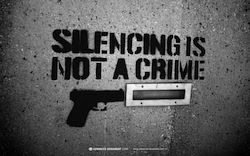The 7th Circuit has been surprisingly good when it comes to Second Amendment issues, so it’s not a huge surprise that Ezell II has scored a victory. If you recall, Chicago tried to zone gun ranges out of the city. That was struck down in Ezell I. So the city basically rewrote the law so that gun ranges aren’t technically banned, but they are subject to a patchwork of regulation that amounts to a de facto ban. They also prohibited minors from using legal gun ranges in the city.
Basically, in Chicago you couldn’t teach your kids to shoot, which wasn’t an issue anyway, since there were no ranges in the city by design. The city’s new laws, designed to evade Ezell I, is now struck down in Ezell II. The opinion being delivered by Judge Diane Sykes. Judge Sykes is on Trump’s list of judges he told us he’s considering for nominations to the Supreme Court.
We affirm in part and reverse in part. The two zoning regulations—the manufacturing-district classification and the distancing rule—dramatically limit the ability to site a shooting range within city limits. Under the combined effect of these two regulations, only 2.2% of the city’s total acreage is even theoretically available, and the commercial viability of any of these parcels is questionable—so much so that no shooting range yet exists. This severely limits Chicagoans’ Second Amendment right to maintain proficiency in firearm use via target practice at a range. To justify these barriers, the City raised only speculative claims of harm to public health and safety. That’s not nearly enough to survive the heightened scrutiny that applies to burdens on Second Amendment rights.
The age restriction also flunks heightened scrutiny. We held in Ezell I that the Second Amendment protects the right to learn and practice firearm use in the controlled setting of a shooting range. The City insists that no person under age 18 enjoys this right. That’s an extraordinarily broad claim, and the City failed to back it up. Nor did the City adequately justify barring anyone under 18 from entering a range. To the contrary, its own witness on this subject agreed that the age restriction is overbroad because teenagers can safely be taught to shoot and youth firearm instruction is both pruent and can be conducted in a safe manner.
What really pleases me is that the judges took note that the zoning rules allowed law enforcement ranges on any commercial property, and the city notes those ranges operated safely. They looked at that and balked at how that argument wouldn’t apply somehow to civilian shooting ranges. In a small way, they looked at police exemptions and called bullshit on it. This is what I think courts should do. If they are exempting the cops, something is fishy.
And if more were needed, the City concedes (as it must) that law-enforcement and private-security ranges operate in commercial districts throughout Chicago near schools, churches, parks, and stores; the City acknowledges that they operate quite safely in these locations. Common sense suggests that law-enforcement ranges probably do not attract many thieves, but the City’s theft-protection rationale for these zoning rules is so woefully unsupported that the distinction between law-enforcement and commercial ranges doesn’t carry much weight. The City doesn’t even try to argue that commercial ranges create greater fire or environ- mental risks than law-enforcement ranges.
The whole opinion is pretty decent. Scalia was passionate about the issue because he was a shooter. I’d like to see a shooter replace him. I don’t know if Judge Sykes is a shooter or not, but from what I’ve seen from her, I’d definitely find her to be an acceptable court pick by Trump.




 By now we’ve all head of the mass shooting at the Fort Lauderdale Airport terminal.
By now we’ve all head of the mass shooting at the Fort Lauderdale Airport terminal. 